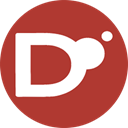Top PHP Alternatives: Exploring Better Web Development Options
PHP is a widely-used general-purpose scripting language that has long been a staple for web development, especially for embedding into HTML. While incredibly popular and versatile, the ever-evolving landscape of technology means developers are constantly seeking tools that better fit modern demands for performance, scalability, and specific functionalities. If you're looking to broaden your horizons beyond PHP, this guide explores some of the best PHP alternatives available today.
Discovering Excellent PHP Alternatives
Whether you're building a new web application, a command-line tool, or a complex system, there's a strong likelihood that an alternative to PHP will offer unique advantages. Let's dive into some powerful options that might just be the perfect fit for your next project.

Python
Python is an interpreted, interactive, object-oriented, and extensible programming language. It offers an extraordinary combination of clarity and versatility, making it a powerful PHP alternative. Being free and open-source, Python runs on a vast array of platforms including Mac, Windows, Linux, S60, BSD, AROS, Haiku, AmigaOS, and OpenSolaris. Its features like high-level syntax, object-oriented design, dynamic typing, and garbage collection make it suitable for web development, data science, AI, and more.

JavaScript
JavaScript (JS) is a lightweight, interpreted, object-oriented language most known as the scripting language for web browsers, but with Node.js, it has become a full-stack PHP alternative. It's free and open-source, running on Mac, Windows, Linux, Web, Android, iPhone, Chrome OS, BSD, iPad, AROS, and Haiku. Key features include its asynchronous nature, dynamic typing, interpreted execution, and strong focus on web development, making it incredibly versatile for both front-end and back-end.

Java
Java is a general-purpose, concurrent, class-based, object-oriented programming language designed for minimal implementation dependencies, making it a robust PHP alternative for large-scale applications. It's free for personal use and open-source, compatible with Mac, Windows, Linux, Web, Android, Java Mobile, S60, HP webOS, Blackberry, Android Tablet, BSD, Blackberry 10, PlayBook, and Kindle Fire. Its strengths lie in its object-oriented nature, cross-platform compatibility, and excellent garbage collection, ideal for enterprise-level development.

Ruby
Ruby is a dynamic, reflective, general-purpose object-oriented programming language that combines syntax inspired by Perl with Smalltalk-like features. As a free and open-source PHP alternative, Ruby is highly productive, especially with frameworks like Ruby on Rails. It runs on Mac, Windows, Linux, BSD, and Haiku, featuring dynamic typing, an interpreter, a robust package manager, and a strong object-oriented paradigm.

Lua
Lua is a powerful, fast, lightweight, and embeddable scripting language. It's an excellent PHP alternative for specific use cases, particularly game development and embedded systems, due to its small footprint and high performance. Lua is free and open-source, supported on Mac, Windows, Linux, Android, iPhone, Android Tablet, BSD, iPad, Android Wear, Haiku, AmigaOS, Playstation, and MorphOS. Its core features include strong scripting capabilities and flexibility for configuration.

Perl
Perl is a high-level, general-purpose, interpreted, dynamic programming language with a long history of development. It's a capable PHP alternative, especially strong in text processing and system administration tasks. Free and open-source, Perl runs on Mac, Windows, Linux, BSD, and Haiku. Its shell integration features make it incredibly powerful for scripting complex tasks.

Haskell
Haskell is an advanced purely-functional programming language, offering a distinct paradigm shift from PHP. It's an open-source product of extensive research, allowing rapid development of robust and correct software. Haskell is free and runs on Mac, Windows, Linux, and BSD. Its key features include strong functional language capabilities, static typing, and tail call optimization, making it ideal for high-assurance systems.

D (Programming Language)
D is a language with C-like syntax and static typing, pragmatically combining efficiency, control, and modeling power with safety and programmer productivity. As a free and open-source PHP alternative, D is highly versatile. It runs on Mac, Windows, Linux, and BSD. Its features include contract programming, functional language constructs, high-level abstractions, multiparadigm support, and object-oriented capabilities, suitable for system programming and application development.

Scala
Scala is a modern multi-paradigm programming language based on the Java Virtual Machine (JVM), designed to express common programming patterns concisely and elegantly. It's a powerful PHP alternative, especially for complex, concurrent applications. Free and open-source, Scala runs on Mac, Windows, Linux, and BSD. Key features include its compiled nature, robust compiler, strong functional language support, and object-oriented programming model.

Tcl
Tcl (Tool Command Language) is a simple yet powerful scripting language, offering a unique PHP alternative for specific domains. It's free and open-source, available on Mac, Windows, Linux, and BSD. Tcl is highly regarded for its GUI capabilities (through Tk), rapid application development (RAD) features, and general scripting prowess, making it useful for embedded systems and cross-platform applications.
The world of programming languages offers a rich tapestry of options beyond PHP. Each alternative presented here brings its own set of strengths, catering to different project requirements, performance needs, and development philosophies. We encourage you to explore these excellent PHP alternatives, experiment with their features, and ultimately choose the one that best aligns with your vision and goals.